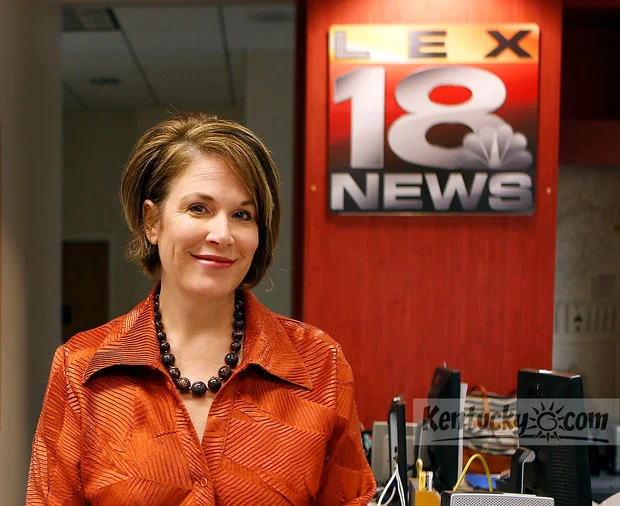Lexington Reporter Donates Kidney to Stranger
/You know when you give the homeless guy a few bucks and you feel like you've done some good?
One Lexington Reporter is going to make that act look like chump change.
Sometimes a TV news reporter will really touch you, it's rare when it touches the Reporter telling the story.
After reporting a story last year, WLEX Reporter Leigh Searcy decided to donate a kidney to anyone who needed it, even if it was a stranger.
Searcy does not know who the recipient was, but it was a woman "whom I'm told is doing very well and I'm happy for her."
Searcy, a WLEX-TV news reporter, told University of Kentucky Chandler Hospital officials that she would like to meet the recipient if the woman is willing. The meeting would be "wonderful;" however, Searcy said she understands if it never takes place.
"If I don't, I just hope my kidney is doing its job for her ... I just really hope it continues to work for her,'' Searcy said.
It is fair to say that Searcy never really thought of donating a kidney.
She had heard stories of people donating a kidney and she had covered stories of someone needing a transplant.
"But it never hit me as something I would do," she said.
That changed one day last year when she was reporting a story about a family that was reminiscent to hers. She met a couple who had two young children as she and her husband do.
The man was on a kidney dialysis schedule that regulated everything from going to the grocery to taking the kids to the park. He was on a strict diet. And he needed a kidney transplant.
"It's hard to explain," said Searcy. "But I left that home thinking, 'I'm going to get tested to see if I'm a match for him.'
"It's hard to explain," said Searcy. "But I left that home thinking, 'I'm going to get tested to see if I'm a match for him.'"
Searcy was not a match for that man, but she decided to continue with the testing to see whether she would be a match for someone else.
"I considered the risks," she recalled. "My father pointed out more than once the fact I have two young kids; what if something happened?"
Stephen Strup, the James F. Glenn Professor and chief of urology in the University of Kentucky College of Medicine, said it's unusual for someone to donate their kidney without having some knowledge of the recipient.
An estimated 365 people are waiting to have a kidney transplant at the University of Kentucky Chandler Hospital, said Lynne Polly, a living donor coordinator. There were about 20 living donors this year and 70 deceased donors. Of the living donors in 2013, only Searcy and one other donor did not know the recipient.
Said Searcy: "I was healthy, had healthy children and most importantly, had no family history of kidney problems. Why not help someone if I can? It was a very matter-of-fact decision for me."
Strup said he found Searcy to be "motivated and pleasant."
Donors need to be comfortable "with the decision to do it. And she was all along," said Polly.
"I don't think she had doubts about it ever," Polly said. "She wasn't ever hesitant. She was just practical about it, straightforward. She never said, 'What if, what if, what if.'"
She went into it "eyes wide open and really thought about it and felt like it was something she was called to do," said Strup.
A month before the surgery, when it was time to have a discussion with her 5-year-old daughter Olivia and 6-year-old son Reece, Searcy said she simplified her role as a kidney donor:
"It's like having two cookies and sharing one with someone who doesn't have one," she told them.













